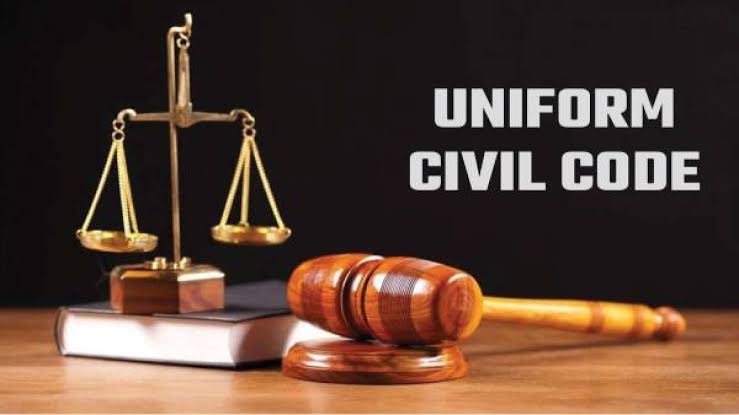Uniform Civil Code (Indian Express)

- 05 Feb 2024
Why is it in the News
The Uttarakhand Cabinet on Sunday approved the final draft of the Uniform Civil Code (UCC) without any changes, a day before the state Assembly convenes for a special session to take up the Bill.
What is Uniform Civil Code (UCC)?
- A Uniform Civil Code signifies a unified legal framework for the entire country, applicable across all religious communities concerning personal matters like marriage, divorce, inheritance, and adoption.
- The objective is to replace the current fragmented personal laws that govern interpersonal relationships within different religious communities.
Constitutional Framework:
- Article 44 of the Constitution mandates the State to strive for a Uniform Civil Code applicable to all citizens.
- Positioned in Part-IV as a Directive Principle, Article 44, while not justiciable, serves as a fundamental governance guideline.
- These principles, outlined in Article 37, provide overarching ideas for the State to consider in policy formulation and law enactment.
Current Landscape of Personal Laws:
- In the Concurrent list of the Constitution, matters such as marriage, divorce, and inheritance fall under both Parliament and state legislature jurisdictions.
- Hindu personal laws have been codified into four parts since 1956, while Muslim laws, not codified per se, draw from religious texts.
- Christians, Zoroastrians, and Jews are governed by their own personal laws. Goa stands as an exception, following the Portuguese Civil Code.
Need for Uniform Civil Code:
- A UCC aims to establish equal status for all citizens, addressing the inconsistency and lack of uniformity in personal laws across different religions.
- This inconsistency, conflicting with Article 14's Equality before the Law guarantee, often results in gender disparities.
Challenges and Criticisms:
- While advocating equality, the UCC concept raises concerns about potential clashes with the Right to Freedom of Religion (Article 25).
- Critics argue that separate personal laws uphold the right to practice one's religion, particularly crucial for minorities.
- Striking a balance, the Law Commission's 2018 report suggests preserving diversity in personal laws while ensuring alignment with fundamental rights.
The Way Forward:
- Encouraging a progressive mindset through education, awareness, and sensitization is vital for understanding the spirit of the UCC.
- Simultaneously, discriminatory personal laws should be amended or abolished.
- The Law Commission recommends codifying different personal laws to derive universal principles prioritizing equity, rather than imposing a blanket Uniform Civil Code
